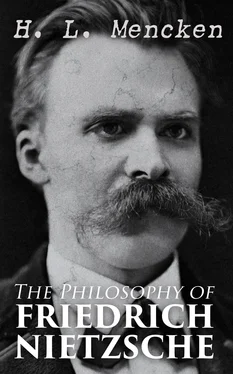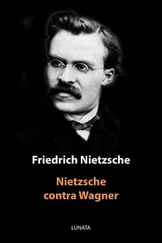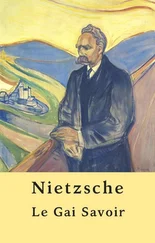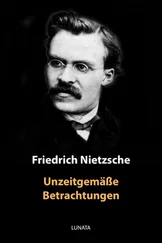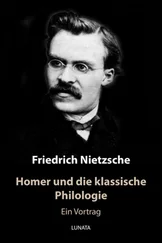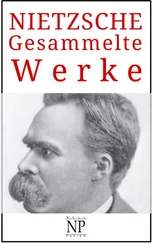Nietzsche maintained that Greek art was at first apollonic, but that eventually there appeared a dionysian influence—the fruit, perhaps, of contact with primitive, barbarous peoples. Ever afterward there was constant conflict between them and this conflict was the essence of Greek tragedy. As Sarcey tells us, a play, to hold our attention, must depict some sort of battle, between man and man or idea and idea. In the melodrama of today the battle is between hero and villain; in the ancient Greek tragedy it was between Apollo and Dionysus, between the life contemplative and the life strenuous, between law and outlaw, between the devil and the seraphim.
Nietzsche, as we shall see, afterward applied this distinction in morals and life as well as in art. He called himself a dionysian and the crowning volume of his system of philosophy, which he had barely started when insanity overtook him, was to have been called "Dionysus."
1.Friedrich Wilhelm Ritschl (1806-1876), the foremost philologist of modern times. He became a professor of classical literature and rhetoric in 1839 and founded the science of historical literary criticism, as we know it today.
2.Arthur Schopenhauer (1788-1860) published this book, his magnum opus , at Leipsic in 1819. It has been translated into English as "The World as Will and Idea" and has appeared in many editions.
3.Schopenhauer ( "Nachträge für Lehre vom Leiden der Welt ") puts the argument thus: "Pleasure is never as pleasant as we expect it to be and pain is always more painful. The pain in the world always outweighs the pleasure. If you don't believe it, compare the respective feelings of two animals, one of which is eating the other."
4.Later on, in " Menschliches allzu Menschliches ," II, Nietzsche argued that the ascetic was either a coward, who feared the temptations of pleasure and the agonies of pain, or an exhausted worldling who had become satiated with life.
5.Begun in 1869, this maiden work was dedicated to Richard Wagner. At Wagner's suggestion Nietzsche eliminated a great deal of matter in the original draft. The full title was "The Birth of Tragedy from the Spirit of Music," but this was changed, in 1886, when a third edition was printed, to "The Birth of Tragedy, or Hellenism and Pessimism." Nietzsche then also added a long preface, entitled "An Attempt at Self-Criticism." The material originally excluded was published in 1896.
Table of Contents
Having given birth, in this theory of Greek tragedy, to an idea which, whatever its defects otherwise, was at least original, understandable and workable, Nietzsche began to be conscious, as it were, of his own intellect—or, in his sister's phrase, "to understand what a great man he was." During his first years at Basel he had cut quite a figure in academic society, for he was an excellent musician, he enjoyed dancing and he had plenty of pretty things to say to the ladies. But as his ideas clarified and he found himself more and more in conflict with the pundits about him, he withdrew within himself, and in the end he had few friends save Richard and Cosima Wagner, who lived at Tribschen, not far away. To one of his turn of mind, indeed, the atmosphere of the college town was bound to grow oppressive soon or late. Acutely aware of his own superiority, he showed no patience with the unctuous complacency of dons and dignitaries, and so he became embroiled in various conflicts, and even his admirers among his colleagues seldom ventured upon friendly advances.
There are critics who see in all this proof that Nietzsche showed signs of insanity from early manhood, but as a matter of fact it was his abnormally accurate vision and not a vision gone awry, that made him stand so aloof from his fellows. In the vast majority of those about him he saw the coarse metal of sham and pretense beneath the showy gilding of learning. He had before him, at close range, a good many of the great men of his time—the intellectuals whose word was law in the schools. He saw them on parade and he saw them in their shirt sleeves. What wonder that he lost all false reverence for them and began to estimate them in terms, not of their dignity and reputation, but of their actual credibility and worth? It was inevitable that he should compare his own ideas to theirs, and it was inevitable that he should perceive the difference between his own fanatical striving for the truth and the easy dependence upon precedent and formula which lay beneath their booming bombast. Thus there arose in him a fiery loathing for all authority, and a firm belief that his own opinion regarding any matter to which he had given thought was as sound, at the least, as any other man's. Thenceforth the assertive " ich " began to besprinkle his discourse and his pages. "I condemn Christianity. I have given to mankind.... I was never yet modest.... I think.... I say.... I do...." Thus he hurled his javelin at authority until the end.
To those about him, perhaps, Nietzsche seemed wild and impossible, but it is not recorded that any one ever looked upon him as ridiculous. His high brow, bared by the way in which he brushed his hair; his keen eyes, with their monstrous overhanging brows, and his immense, untrimmed moustache gave him an air of alarming earnestness. Beside the pedagogues about him—with their well-barbered, professorial beards, their bald heads and their learned spectacles—he seemed like some incomprehensible foreigner. The exotic air he bore delighted him and he cultivated it assiduously. He regarded himself as a Polish grandee set down by an unkind fate among German shopkeepers, and it gave him vast pleasure when the hotel porters and street beggars, deceived by his disorderly façade, called him "The Polack."
Thus he lived and had his being. The inquisitive boy of old Naumburg, the impudent youth of Pforta and the academic free lance of Bonn and Leipsic had become merged into a man sure of himself and contemptuous of all whose search for the truth was hampered or hedged about by any respect for statute or precedent. He saw that the philosophers and sages of the day, in many of their most gorgeous flights of logic, started from false premises, and he observed the fact that certain of the dominant moral, political and social maxims of the time were mere foolishness. It struck him, too, that all of this faulty ratiocination—all of this assumption of outworn doctrines and dependence upon exploded creeds—was not confined to the confessedly orthodox. There was fallacy no less disgusting in the other camp. The professed apostles of revolt were becoming as bad as the old crusaders and apologists.
Nietzsche harbored a fevered yearning to call all of these false prophets to book and to reduce their fine axioms to absurdity. Accordingly, he planned a series of twenty-four pamphlets and decided to call them " Unzeitgemässe Betrachtungen " which may be translated as "Inopportune Speculations," or more clearly, "Essays in Sham-Smashing." In looking about for a head to smash in essay number one, his eye, naturally enough, alighted upon that of David Strauss, the favorite philosopher and fashionable iconoclast of the day. Strauss had been a preacher but had renounced the cloth and set up shop as a critic of Christianity. 1He had labored with good intentions, no doubt, but the net result of all his smug agnosticism was that his disciples were as self-satisfied, bigoted and prejudiced in the garb of agnostics as they had been before as Christians. Nietzsche's clear eye saw this and in the first of his little pamphlets, " David Strauss, der Bekenner und der Schriftsteller " ("David Strauss, the Confessor and the Writer"), he bore down upon Strauss' bourgeoise pseudo-skepticism most savagely. This was in 1873.
Читать дальше
